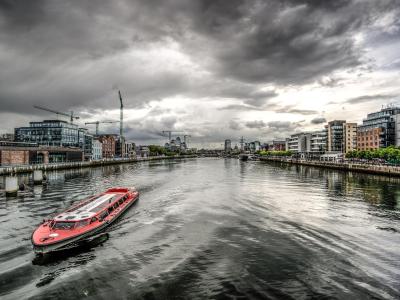Making Ireland (even more) competitive as a seat for international arbitration

Making Ireland (even more) competitive as a seat for international arbitration
- International disputes and arbitration
- Seat selection in arbitration proceedings
- Why choosing Dublin as a seat (not just venue!) for arbitration?
- The Irish plan for the years ahead
1. International disputes and arbitration
Some of the largest international disputes in the world are resolved through arbitration rather than through litigation.
I recently attended a very interesting professional training event in Dublin dedicated to international arbitration in Ireland.
An effort is currently being brought by the ADR Committee of the Law Society of Ireland, the Dublin Dispute Resolution Centre, Arbitration Ireland and Irish professionals in the legal sector specialising in arbitration, in order to make Ireland more competitive as a seat for international arbitration proceedings.
2. Seat selection in arbitration proceedings
Let’s start by saying that almost every business in Ireland is “international” as the whole Irish economy has players such as large foreign companies that set up business in the island from Europe and overseas, mostly from US, many years ago – e.g. high tech companies, financial services and insurance companies.
Seat selection for arbitration proceedings in international contracts regulating cross-border transactions is a conservative process, though.
Experienced deal makers and their counsels would very easily pick London, Paris and Geneva – three very popular seats for arbitration –, followed closely by Stockholm, The Hague and Vienna.
3. Why choosing Dublin as a seat (not just venue!) for arbitration?
As we all know, selection of the arbitral seat has a number of very significant legal consequences – it might determine or however affect determination of the law which governs the arbitration, including the validity of the arbitration agreement itself and the law that applies to any action to set aside or annul an arbitral award.
Ireland’s high pitch for international arbitration is due to a number of factors:
- Ireland is a Common law jurisdiction (the one and only in EU after Brexit);
- UNCITRAL Model Law on International Arbitration was incorporated into Irish Law in the 2010 Arbitration Act;
- Ireland signed the Convention on the Recognition and Enforcement of Foreign Arbitral Awards, also known as the “New York Arbitration Convention”, so parties have assurance that awards rendered in Dublin can be directly enforced in other signatories’ jurisdictions (currently 168 in the world);
- all the arbitration-related applications in Ireland would be under the exclusive jurisdiction of the High Court which guarantees efficiency and consistency in case law (i.e. appeals) on arbitration matters;
- in Ireland you have a
- strong and open business culture,
- high level of technological infrastructures,
- high degree of neutrality for US vs EU parties,
- a strong rule-of-law culture.
Above all that, as the speakers in the professional training event pointed out repeatedly, Irish law should be seen as a valid and efficient alternative to English law for cross-border transactions – a circumstance that is due to occur after Brexit – so that choosing Dublin as a seat for arbitration would be the natural consequence. This is by all means consistent with the message that Ireland has been sending since Brexit - Dublin is an excellent back-up plan where London is no longer an option.
4. The Irish plan for the years ahead
There is still room for improvement, though.
Ireland does not currently have an arbitral institution of its own. International arbitrations are carried out in Ireland when Dublin is chosen as a seat for the proceedings and generally come from the ICC International Court of Arbitration or other arbitral institutions.
However, no doubt Ireland will get to become an international arbitration hub by focused and continued work in the next few years.



